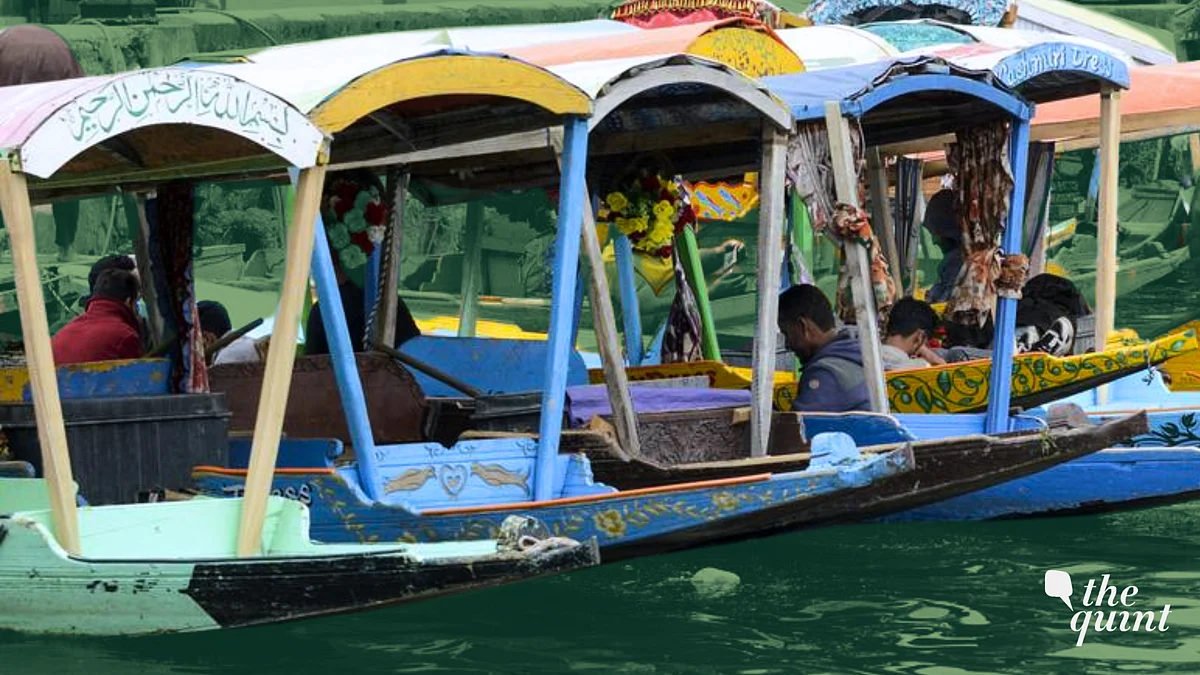Kashmiris Fear Debt, Joblessness After Terror Attack Shatters Fragile Peace
Over 13 lakh bookings cancelled as Kashmir’s peak tourism season takes a massive hit.

advertisement
Following the abrogation of Jammu & Kashmir's special status in 2019 and the prolonged impact of pandemic-related lockdowns, the region's tourism sector had only recently begun to recover. Over the past three years, it had shown consistent growth, once again emerging as a key economic driver. Often viewed by the central government as an informal indicator of stability, the industry was projected to expand further this year—until the recent attack disrupted that trajectory.
Thousands of bookings now stand cancelled, and livelihoods are at risk. Mushtaq Chaya, Chairman, The Jammu and Kashmir Hotels and Restaurants Association (KHA) estimates that over 90 per cent of the expected tourist inflow is now unlikely to materialise. Industry operators report that cancellations began within hours of the incident.
According to official data of J&K Tourism Department, over half a million tourists visited the region in the first three months of 2025. This includes 5,14,845 domestic and 10,427 foreign tourists. The region recorded approximately 2.95 million tourist arrivals in 2024, up from 2.71 million in 2023 and 2.67 million in 2022. Tourism contributes nearly 7-8 per cent to the Union Territory's Gross State Domestic Product. However, approximately 13 lakhs bookings through August were cancelled following the attack, according to a statement to the media by Babar Chaudhary, President of the Kashmir Hotel and Restaurant Association.
Local business owners report an immediate halt in operations. With the government shutting 48 of Kashmir's 87 recognised tourist destinations, hotel rooms lie vacant, taxis remain idle, and guides and artisans find themselves without work. Many tourism operators say they are now staring at financial distress, having taken loans in anticipation of the peak season.
Tourism sustains over 20 lakh jobs in Kashmir, directly and indirectly. With over half the valley's tourist destinations now closed, the economic ripple effect is immediate. That is nearly 1 in 4 households in the valley depending upon it for survival.
The cancellations have hit during the region's peak tourism months, a period when local economies typically earn the majority of their annual income.
Tourism stakeholders fear the impact may extend far beyond the current season. Sheikh Tajamul, a local art shop owner in Pahalgam, said the sense of fear among visitors has erased years of progress.
Beyond the financial fallout, many residents feel that Kashmir’s carefully rebuilt image as a safe tourist destination has been severely damaged.
In a special assembly session, Chief Minister Omar Abdullah voiced the collective grief felt across the Valley. "Those who did this claim they did it for us. But did we ask for this? Did we say that these 26 people should be sent back in coffins in our name? None of us is with this attack. This attack has hollowed us out."
Despite the violence, many locals stepped in to support stranded tourists. From shikarawallahs, who earns only a few hundred rupees a day, offered free fruit chaat to cab operators who transported tourists without charge, and hotel owners opened their rooms for shelter.
According to sources, Syed Adil Shah, a pony ride operator, attempted to wrest a rifle from one of the gunmen, creating a momentary distraction that allowed some tourists to flee. Adil was shot and killed on the spot.
Before the attack, the administration had set a target to double tourism’s contribution to the economy within five years and to create 50,000 new jobs annually. In 2024, tourist arrivals had reached 2.95 million, up from 2.71 million in 2023. But with the season now disrupted, many in the Valley fear a prolonged slump and say trust, once broken, will be difficult to restore.